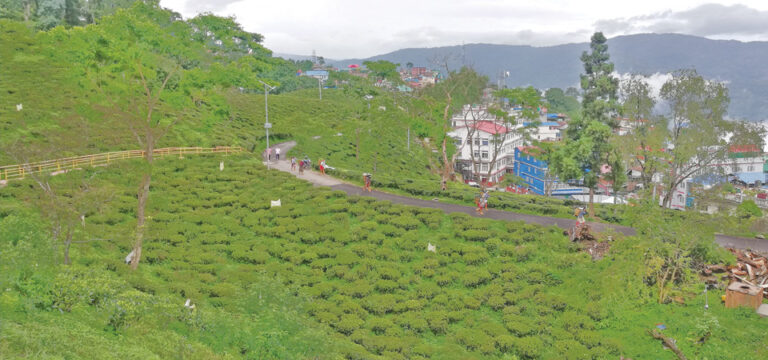
A century and a half after tea cultivation began in Nepal, scientists have begun work on the development of a Nepali variety of tea.
According to the Tea and Coffee Extension Office of Fikkal, work has begun on developing a uniquely Nepali variety of tea by using the first tea plants planted in the country during the time of Jung Bahadur Rana.
Indra Adhikari, head of the extension office, told The Rising Nepal that seven Tea and Coffee Extension Offices of Ilam and the Commercial Crop Research Centre of Dhankuta were working under the National Tea and Coffee Development Board (NTCDB) and the Nepal Agricultural Research Council (NARC) respectively to develop a Nepali variety of tea.
Adhikari informed that ten plants each had been selected from the Ilam and Kanyam tea gardens and were currently being studied in the extension offices. Similarly, tea plants have also been taken from the Soktim tea garden of Dhankuta for research.
The Fikkal Tea and Coffee Extension Office began developing a Nepali variety of tea four years ago under the leadership of Darjeeling tea expert SK Pradhan. However, work stopped two years ago after Pradhan died. But now, work has resumed utilising Pradhan’s research.
Meanwhile, the tea plants taken from Soktim are also growing nicely and their leaves will be ready for plucking very soon, informed Dr. Govindra Timsina, head of the Pakhribas office of NARC. “We will look into the quality of the tea and link our work with the research done in Ilam to introduce a Nepali variety of tea as soon as possible,” he said.
Once a variety is developed, it will be sent to the Seed Quality Control Centre for registration.
“It will take eight to ten years to develop our variety of tea because we lack skilled manpower and scientists. If we have enough scientifically-trained individuals, we can get it done sooner,” Timsina said.
At present, Nepal plants Indian and Chinese varieties of tea. This year though, the federal government implemented a programme to develop a Nepali variety of tea which will aid NTCDB and NARC’s efforts, Adhikari said.
Source : TRN,






